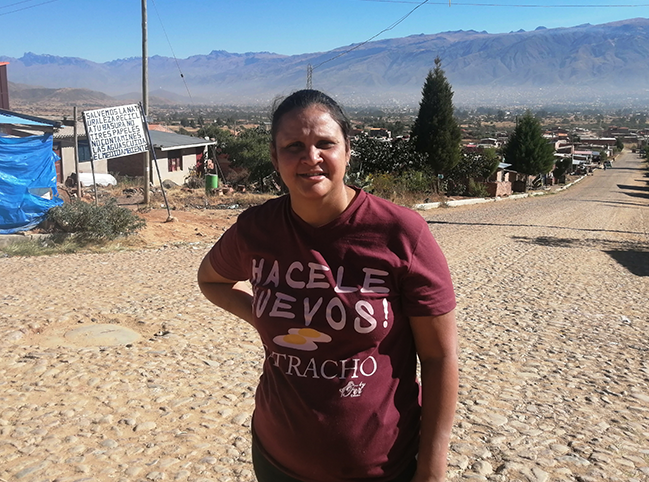Delmy Ruth Lanza is from San Pedro Sula in Honduras and is 46 years old. She has lived for many years in Sacaba, a town in the Cochabamba region of Bolivia, and is the director of the Sigamos Special Education Day Centre. With her team of 14 people, she is dedicated to providing specialised care for children with special needs or learning difficulties. She also provides a program for young people of school age. These young people come from difficult backgrounds and live in great poverty. Before coming to Bolivia, Delmy Ruth Lanza worked in various social projects in El Salvador and Honduras.
Where and how did you grow up?
I grew up in the Medina neighborhood, one of the most popular neighborhoods in San Pedro Sula, Honduras. Despite the difficulties and shortcomings I experienced in a broken family, I had a mother who was unconditionally there for her children, a fighter who stood up for others. The realities of life there were stark and people just longed to be shown some tenderness from a loved one and to have an opportunity for positive change in their lives. It was strange and the only reality for people was to do what they had to do to survive. There were stories in that neighbourhood that ultimately brought me to where I am today.
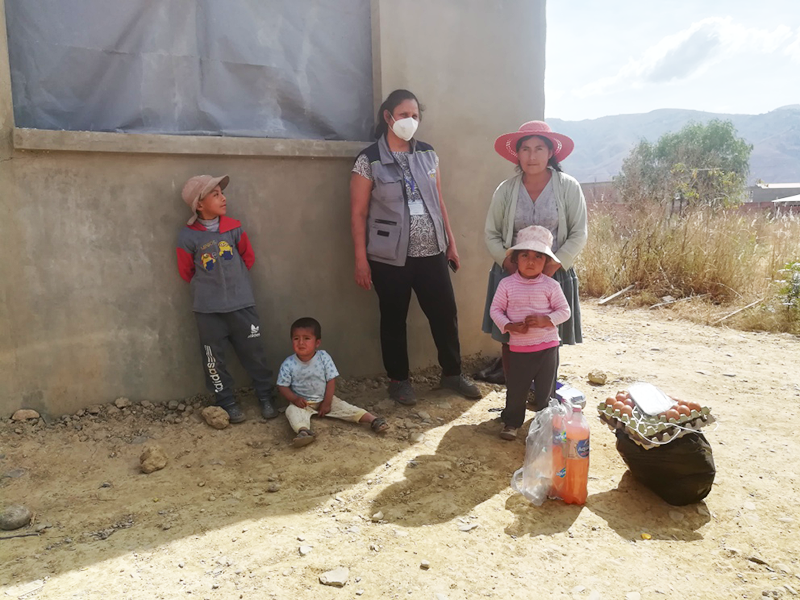
Could you describe your professional background?
I studied theology and social pedagogy. I always had the dream to work for others, and through a youth association I discovered the desire to be a lay missionary.
Before I entered this world of religious service, I worked for a bank, having previously also trained in administration. It was a good job – a job that everyone dreamed of. I had a good time, but I was never happy, even though I had everything.
So I decided to join the missionary community of the Vincentian laity in Honduras. I made this choice together with my partner, with whom I am now happily married, and together we have been living in the service of the most disadvantaged ever since.
Before coming to Bolivia, I dedicated myself to working with children at risk. I worked as a social pedagogue in “Amigos para Siempre”, a social pedagogical program for children at risk, aimed at keeping them away from the world of prostitution and the sale and consumption of drugs. Alongside this role, I also coordinated a therapeutic program for men with alcohol problems. This program helped many men reintegrate into society, especially in finding a job and rebuilding their lives with their families.
I came to Bolivia 16 years ago, hoping to have a new experience and reality through the Vincentian Lay Missionaries and to form a community here. I was involved in a tutoring program for children who had learning difficulties and were at risk because of their life situations.
Since 2013, I have been specifically taking care of children and young people either with special needs or with learning difficulties.
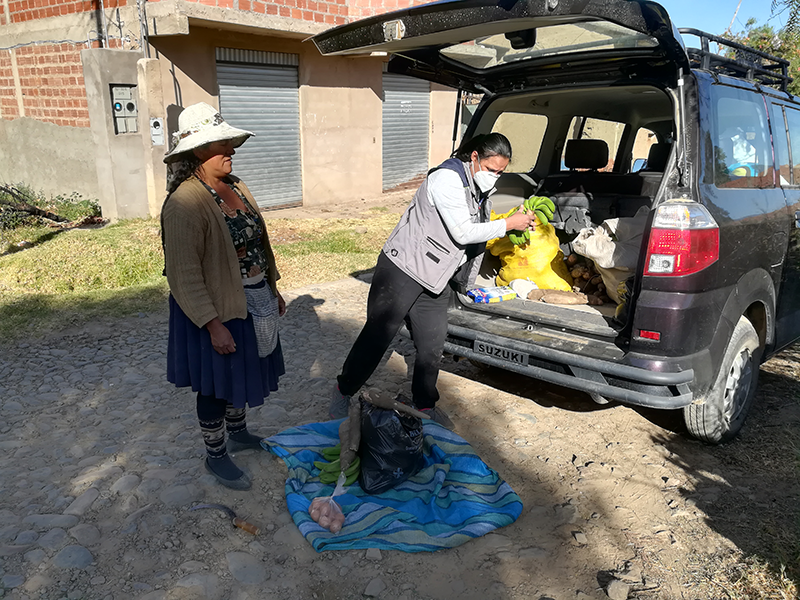
Were there certain events or stations that were formative for your career?
Of course. I belonged to a youth association that helped form my direction and develop my faith. I discovered the meaning of the life that I wanted to live and that led to the opportunity to dedicate myself to helping those most in need as a lay missionary.
Has your environment supported you in your career?
Of course – all the people around you and with whom you live day by day are very significant – as well as the experiences I have every day, supporting the people with whom and for whom I work in their difficult life situations.
What are your current activities?
In light of the declaration of a state of emergency due to the COVID-19 pandemic and the accompanying lockdown in Bolivia, our work at the Sigamos Special Education Day Centre has changed drastically. Here we work with children and young adults with disabilities and learning difficulties, trying to integrate them into regular schools whenever possible. Most of them come from dysfunctional families with low incomes, so it is crucial that they receive external care.
With our multidisciplinary team, we have regularly been keeping in contact by phone, trying to find out how these children and young people are doing. We also found out more about the economic, emotional and health situation of their families.
We were sad and concerned to learn that some families lacked food, medicine and other necessities to get them through the quarantine. Many of them live on income that normally comes in day by day, such as by selling food, or they work as cab or bus drivers or in construction. These people have no savings or insurance. For this reason, it was necessary to help them by providing some food and medicine and help to bridge this difficult situation.
Currently, the distribution of food continues within the limits of what is available, since there are families whose precarious situation has worsened over time, even more so here in Sacaba, where unfortunately the number of COVID-19 cases is increasing significantly and the municipality has imposed strict security measures for the renewed quarantine. We hand over the food packages directly to the families, travelling from house to house for this purpose.

Does what you are currently doing fulfil you?
Of course. And it is more than that. I live it deeply. Out of my missionary vocation, I feel called to be with these people.
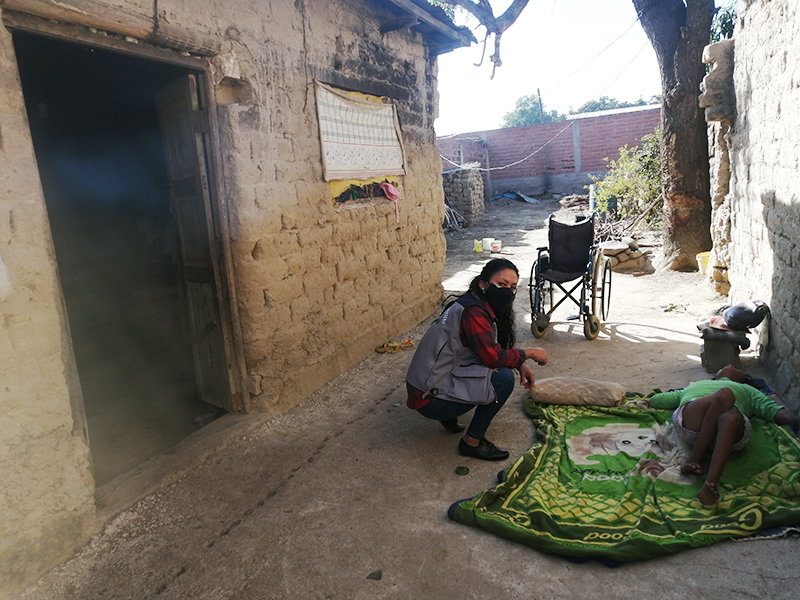
Do you think that you yourself have an influence on whether your activities are fulfilling?
Sometimes I am overcome with fear and doubt, but faith and hope support me to keep going and convince the people around me that we have to do something. We couldn’t do our normal tasks at the Special Education Day Centre because of the lockdown, but we analysed our strengths as a team and as individuals and looked at our possibilities… from that standpoint we tried to do what seemed to be impossible – to reach out to the children and young people with disabilities we usually work with.
I see parents crying because they cannot work in the midst of this health crisis and therefore have nothing for their children to eat. For me, it is an immeasurable joy and hope to reach these families because I know that the family I visit will have something to eat that day. The child in question will have fewer health difficulties because they took their medication that we got for that week – and it is far from easy to get medication right now. It also gives me hope to see the toil of a mother, who walked a 20 km round-trip every day for over a month to see her son who is stuck in the middle of a strict lockdown in the intensive care unit, was worthwhile and not in vain as her son returned home in the end.

There are “magic moments” when everything seems to fit. Moments that fulfil, inspire and give strength. Moments that confirm that the effort is worthwhile and that what you do is meaningful and valuable. Have you already experienced such moments in relation to your own activities?
The only magic I am part of in life is being with those who need that magic – the presence, the closeness, the empathy, that’s what makes moments in life magic. For me, the magic is coming into a home and hearing: “Thank you, thank you, thank you for being here, thank you for this food package, thanks to which my children will have something to eat tonight.”
Are there moments when you doubt what you are doing?
I have never doubted what I do. I wouldn’t know how to live any other way than to work for other people. The only thing that sometimes stops me from doing my best is my family. In these moments of pandemic that we live in, I think about them a lot. But I keep going, with God’s blessing and using all precautions, I have visited every child and young person we work with, despite the pandemic, to be with them in these difficult times.
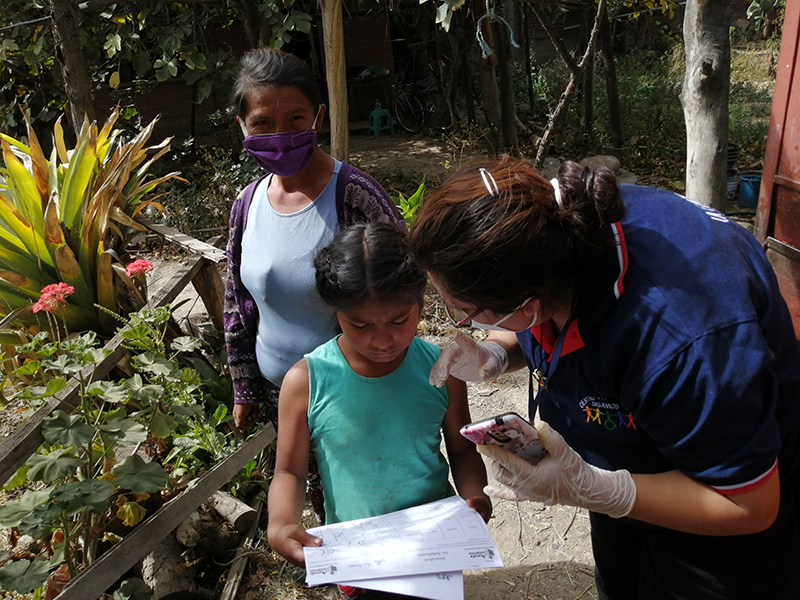
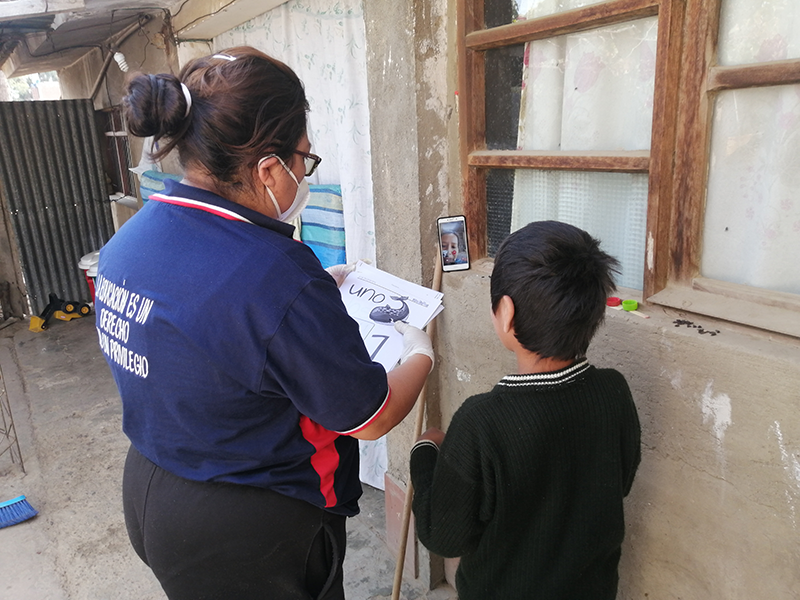
In retrospect, can you find something positive in difficult moments?
Something positive in these difficult times we are currently living in due to the pandemic is perhaps that many families have had the opportunity to be together and devote themselves to other tasks that have allowed them to enjoy being together.
Is there anything you would do differently in retrospect?
I don’t think so. Life has given me the grace to be happy with the little I have, and all my life I have had the opportunity to find a way to deal with the adversities that have arisen.
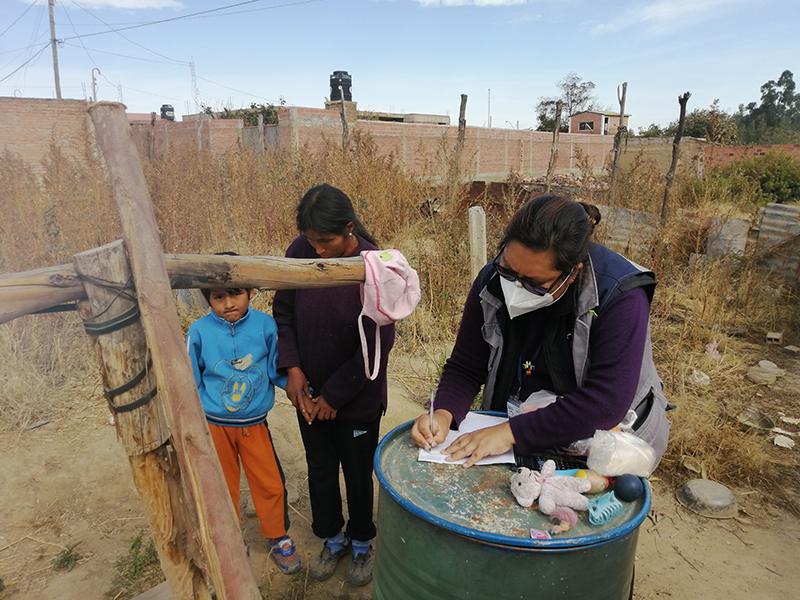
Do you want to contribute to society with your activities?
My contribution to society is to dedicate my life to those who need me, being there for them against all odds and within my means. Out of the service, commitment and responsibility that comes with a vocation.
Is the recognition of other people or the public important to you?
Never. Seeking recognition is not my way of life.
Is there something that is particularly occupying you at the moment?
I worry a lot about my life, that something could happen. I can’t stop thinking about my children and their future.
With the health crisis we are currently experiencing in Bolivia, with over 21’000 positive cases of COVID-19, I am very worried about the emotional and economic situation of children in this country. All economic resources are allocated to deal with the emergency, so children, people with special needs and the elderly are now forgotten.
From June 24th to 30th 2020, the government declared a “dynamic” lockdown, following on from the “strict” lockdown. Activities of certain sectors are allowed again, although the curfew from late afternoon and on weekends remains in force and all school, religious and cultural activities are still completely restricted. Despite all the measures, cases have increased significantly and Sacaba, our city, is at great risk. People are dying in the streets because the hospitals are overloaded. It usually takes several days to get the results of tests. Families cannot afford the medicines they need, and medicines in general have become scarce. More and more hospitals are collapsing and healthcare workers are almost all infected because they do not have the necessary protective clothing. Therefore, the dynamic lockdown will now be followed by another strict lockdown which will then last until mid-July. However, the strict lockdown is rejected by many people. They have to work in order to have an income and therefore run the risk of becoming infected and dying.
The strict lockdown will mean that many families will not be able to eat for days and that their difficulties in coping with everyday life will increase. This can lead to the country being plunged into a rather large health and social crisis.

Is there something you would like to (increasingly) spend time on in the future?
Sure, I would love to spend more time with the families of the children and young people we work with, be it through the work we do in the streets or through home visits.
What are you most grateful for in life?
I thank God and life for the calling I have received. Thanks to all this, I can enjoy the people around me. I thank my family for the support they give me to live this adventure and I thank my team at Sigamos who work with so much commitment and solidarity.
Interview
Laura Hilti, Juni 2020
Illustrationen
Stefani Andersen
Links
Centro Sigamos
Credits
Fotos: Delmy Ruth Lanza
This interview is part of the project “Magic Moments” by Kunstverein Schichtwechsel, in which people are interviewed about their careers, activities and their magical as well as difficult moments.
Curated by Stefani Andersen and Laura Hilti, Kunstverein Schichtwechsel.
Supported by Kulturstiftung Liechtenstein and Stiftung Fürstl. Kommerzienrat Guido Feger.
>>> All interviews

